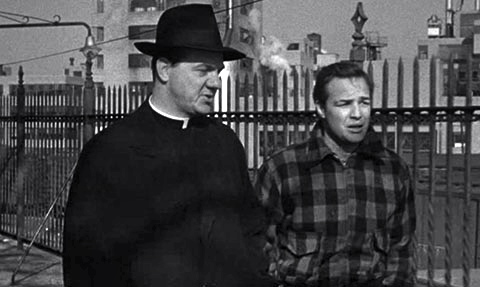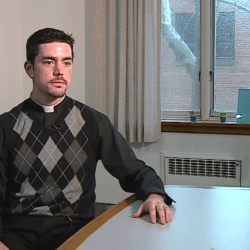An interesting observation on a subject you don’t hear about very much—and one that has a distinctly diaconal dimension:
“Labor priests” were a recognized presence in the labor movement of the 1920s through the 1960s. Father Barry, the Karl Malden character in the 1954 film “On the Waterfront,” was the model of the priest who sided with workers.
Priests conducted Parish Labor Schools where workers interested in collective bargaining studied Catholic social justice doctrine, labor law, and parliamentary procedure.
While parish-based Labor Schools have been largely replaced today by worker centers, labor priests are once again gaining numbers (100 at last count) who share their vision that to diminish workers is to rob them of their God-given vocation
The Priest-Labor Initiative was founded in 2012 by Father Clete Kiley and held its third meeting this month in Atlanta, with two dozen priests in attendance. Kiley was pastor of a large immigrant parish in Chicago, worked on organizing drives at university food services and at O’Hare airport, and is now director for immigration policy for UNITE HERE, the hotel workers union.
Labor priests are doing at the parish level what Pope Francis is doing at his level. Immigration reform, income inequality, human trafficking, a living wage are some of the justice and peace issues on labor priests’ agenda, with overhead cover from Francis.
The present-day labor priest is focused on the community as a core value, insisting that all members of the community receive an adequate share in the fruits of their labor. As he deals with those who labor and are heavily burdened by underemployment, no employment, low wages, no health care, wage theft, assault and abuse in the workplace, he can be a source of compassion, mercy, and counsel. To all he says, “Come, let us reason together how to make the workplace more humane.”
Especially objectionable are imaginative, creative but harmful tactics that cheat the worker of a livelihood, health care, earned vacation time, and sick leave, and plunder pensions. At another level, the practice of pumping infusions of cash to legislators through lobbyists to fix the scales of justice for cheating, or shifting public services like hospitals, postal, prisons, and schools to for-profit contracts is even more troubling.
Labor priests believe there is a role for visible clergy supporting the religious, moral, and spiritual dimension of work, to advocate for oppressed workers, and to walk with them— especially to witness when they return to work after an action. Clergy played this role after the fast-food strikes, escorting workers back to the workplace to fend off retaliation.
Also, for those interested: NCR took at look at the labor priest movement a few weeks back.












